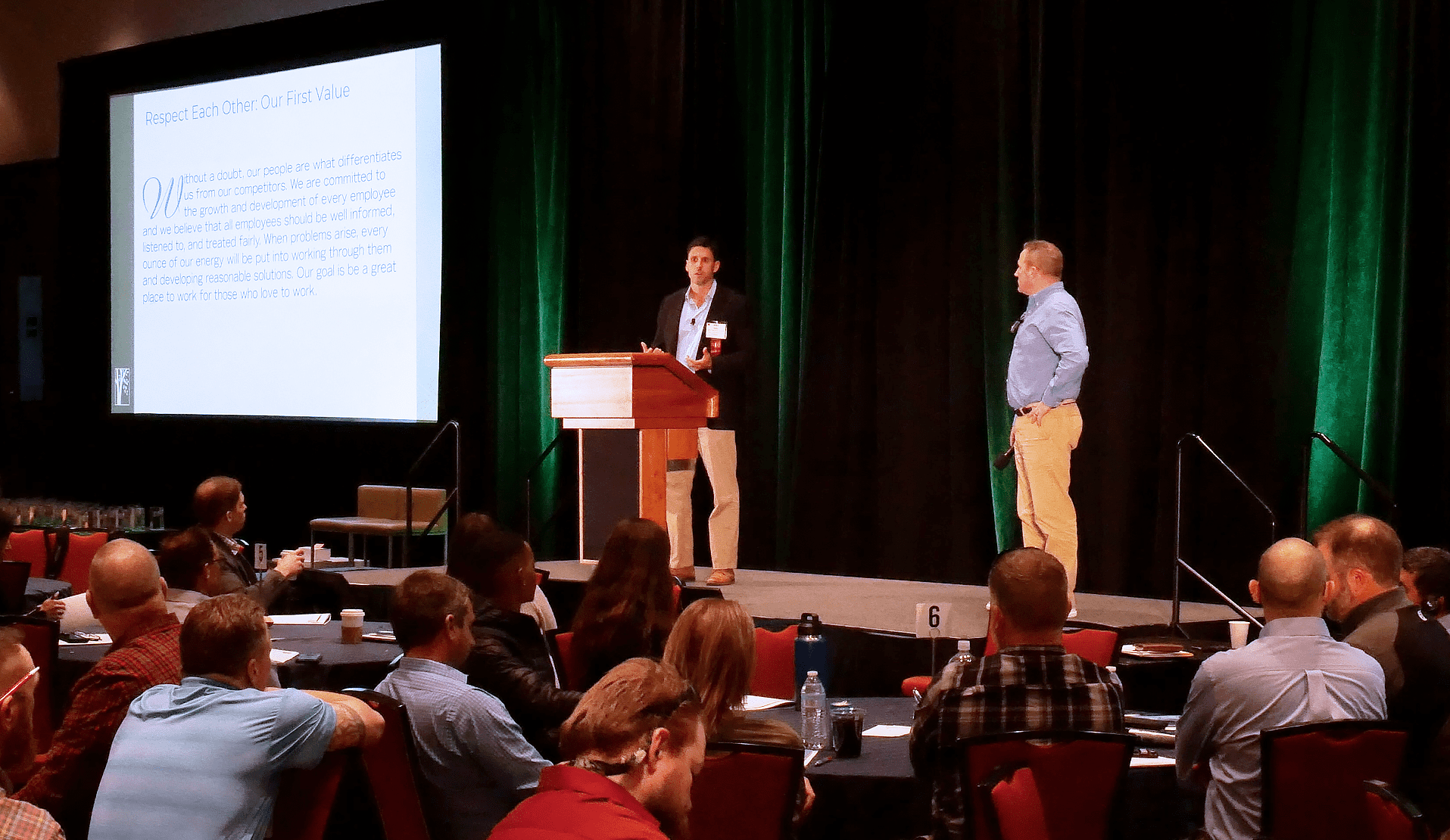By Mike Felts and Jack Jones
 We talk constantly about our number one value, “respect each other,” but how do we really make good on that value? As a company that prides itself on promoting from within, many of our management positions are filled with individuals who excel at the technical portions of the job but have little experience with people management.
We talk constantly about our number one value, “respect each other,” but how do we really make good on that value? As a company that prides itself on promoting from within, many of our management positions are filled with individuals who excel at the technical portions of the job but have little experience with people management.
Our new managers, whether promoted or hired externally, will go through our New Field Managers Orientation (NFMO) as well as our Knowledge, Attitude, Skills, and Habits (KASH) training courses. While these are vital resources, the material needs to be regularly reinforced, which can be difficult to do once our production season takes off. Many of the habits we know we should stay focused on—checking in on our team members, providing on-time and thorough evaluations, and offering continual training—often fall to the wayside.
During this MDD breakout session, we dug a little deeper into trouble spots for new managers when developing relationships with their people and suggested proactive solutions to maintain a healthy team dynamic.
Hire Right
We know what skills and traits that it takes to be successful here—people who are energetic, motivated, have decision-making and communication skills—and we know that people with these traits can be a great fit with the right training. We can also prevent bad hiring decisions by being thorough and honest in the interview process and setting realistic expectations up front. This might mean conducting a working day interview or asking questions that gauge a person’s comfort with working outside in the heat and cold. Sometimes, despite our best efforts, the person is just not right for the job (or the job is not right for them). The best way to prevent this situation from occurring is to be a little more selective in the hiring process—don’t hire out of desperation just because you have a seat to fill!
Ongoing Training
We as managers are responsible for making sure our team members have the skills and knowledge—whether that’s company history and values, technical skills, safety training or understanding the team dynamic—to do the job well. We have a pretty thorough onboarding and orientation process, but training needs to go way beyond their first week on the job. This could include assigning them a training module in our Learning Management System (LMS), helping them get an industry certification, sending them to KASH or NFMO, assigning them a mentor, or just spending a few minutes with them providing a hands-on demonstration. The more you invest in your employees, the more you both will see the benefits.
Relationship with Manager
When asked why someone is or isn’t happy with their job, their first response usually has something to do with their direct supervisor. This puts a lot of responsibility on our shoulders, but it also means that it is almost completely within our power to set our people up for success. Our job is to get to know them on a personal level to understand what motivates them. Set clear expectations for how the work needs to be done and hold them accountable so that they have an opportunity to fix mistakes.
Continuous Feedback
One of the hardest ongoing aspects of managing people is having the tough conversations. In most cases, direct and constructive feedback works best. This can be accomplished using a method called the “Three Ps” of discipline.
- The conversation should happen immediately following the behavior in question, and any disciplinary action should be taken right after the conversation.
- Address the individual away from the group so as to coach, not to embarrass.
- Disciplinary action should increase in extent or severity as the behavior continues (e.g. verbal warning, written warning, suspension, etc.)
Having these conversations as a manager is never fun, but if done properly, it can be used as an opportunity for both parties to grow and improve.
Don’t Be Afraid to Manage
New managers may be hesitant to take charge, but it’s important to remember that people expect to be managed. New employees especially need guidance and leadership to learn their role and expectations. You won’t be doing anyone any favors by taking a laid-back approach to leadership. Direct, proactive communication is the key to a healthy working relationship.
Celebrate the Wins!
Last but not least, nothing bonds a team together more than taking time at the end of a long day or hard week to acknowledge what’s been accomplished and celebrate what’s gone well. Spending time together enables team members to build friendships, improves morale, and reminds people that what they do is seen and valued.
The bottom line is that everyone wants to be part of something. It’s our job as managers to give our team members the training, resources, feedback, and opportunity to become a cohesive part of the team, to grow within their role, and move up in company.
If you are still unsure of your role as a manager, you’re in luck—we have a multitude of tenured leaders who would be happy to mentor you. Don’t be afraid to reach out for advice!